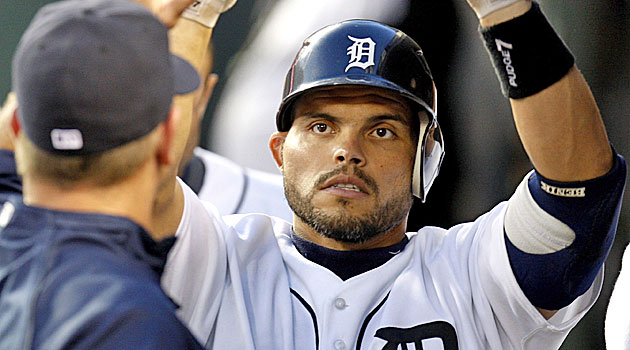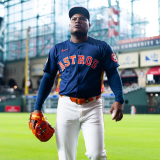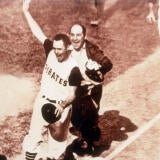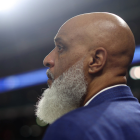
Pudge wanted to be great . . . and he was
Pudge Rodriguez will retire as one of the best catchers in baseball history, perhaps even as the best. But while he was a great, he was a complicated great.
•
2 min read
 |
| Complex is an understatement for Rodriguez's time in Detroit. (Getty Images) |
He was selfish . . . or he really, really cared about winning. He was tough on managers . . . or he was a guy any manager would want.
He was the catcher who pitchers didn't like throwing to . . . until he was the catcher that pitchers demanded to have behind the plate for their starts.
He was one of the very best catchers in baseball history -- maybe even the best -- but he was also a guy who could step in and play second base . . . as he did in 2006, at age 34.
He did it, and he loved it. It was only two innings, and it was only because Placido Polanco, the Tigersregular second baseman, got hurt.
| More on Ivan Rodriguez |
| Analysis |
 |
| Related content |
What was he?
He was the guy who told me on a Sunday morning in July 2008, "These are big games. I should be playing in all three."
He was wrong that time. At that point in his career, Pudge was a much better player when he wasn't playing every day, as Tigers manager Jim Leyland understood. But part of what made Pudge great was that he always believed his team had a better chance to win if he was in the lineup.
He always believed that any team he played on could win.
Who else wins a World Series, and follows it up by signing as a free agent with a team coming off a 119-loss season?
Pudge did.
Sure, he signed with the Tigers late in that winter of 2003-04 because they were the one team willing to meet his four-year, $40 million asking price. But he also signed with the Tigers fully believing that he was going to find a way to make them win.
It didn't happen right away, and in fact, Rodriguez had a rocky relationship with manager Alan Trammell and bench coach Kirk Gibson. But two years later, Pudge was a big part of the reason the Tigers were in the World Series.
He was a player who always knew his own stats, and wasn't afraid to admit it. He was a player who always wanted to be a Hall of Famer, and wasn't afraid to admit that, either.But he was also complicated, right to the end.
Pudge wanted to keep playing, he said. He wanted to get 3,000 hits, he told me many times. As colleague Jon Heyman wrote, he seemed like he wanted to play forever.
And yet he's retiring now, 156 hits shy of 3,000, after turning down opportunities that could have kept his career going.Surprising? No, because that's Pudge.
















